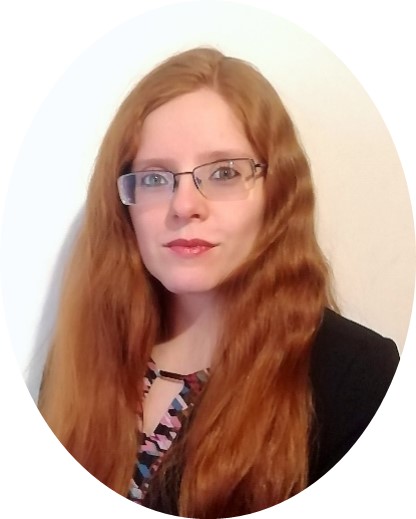Interview with Constanza Miller about awareness building for IP
Which topics are important to you?
IPBA: In your article you talked about the different areas of biotechnology and the “colour code” that is typically associated with it. You studied engineering in molecular biotechnology – what does this subject deal with and what interested you in it?
Constanza Miller: Since I was a girl, I loved questioning things and learning new topics. For me studying science encourages you to forge a particular mindset, challenge everything, and think out of the box. Then, I chose this scientific career since it applies biological knowledge in a unique way to develop products and services to help society and the economy.
IPBA: Many graduates of this subject become scientists or work in industry. Immediately after your studies, you decided to specialize in intellectual property – in other words, to leave your learned subject and look at it from the outside – what motivated you to do so?
CM: Although I loved science, after finishing my college thesis on scientific research on breast cancer and many hours at the lab, it was clear that I did not feel passionate about spending my life in a lab. Thus, I knew I needed to find a different way to apply my scientific knowledge to contribute to the R&D environment, and IP arose as the perfect tool to do so.
IPBA: You work as a consultant for IP and advise inventors, universities, start-ups, SMEs and large companies – what motivates you. What challenges arise from working with such different target groups?
CM: Given that I know how hard it is for scientists, especially from the biotech area, to do research (getting funding, failures, negative results, among others) and to develop something applied from it, my major motivation is to help them to find a way to make all those efforts count. Surely, the view of applicants on how they can accomplish that is very different since they have unalike backgrounds and consequently dissimilar goals, so it is challenging to look for custom solutions (even more when the developments are the results of the collaborations between different groups), but personally, I find it exhilarating!
How do you do awareness building for your topics?
IPBA: Awareness building for intellectual property (IP) in biotech is important. It helps to increase understanding of the value of IP among your target groups like businesses, researchers, and innovators. It also helps to create public support for IP policies and laws that protect intellectual property and incentivize innovation. By increasing awareness, it can also help to reduce the amount of IP theft and infringement, as well as encourage collaboration and knowledge-sharing. Ultimately, increasing awareness about IP can help to promote economic growth and development.
What are your ways to do awareness building? Do you educate people about the importance of IP protection, such as through classes, seminars, and workshops? Are you part of public campaigns to raise awareness of IP, such as through advertising, educational materials, and even social media outreach? Do you partner with organizations and businesses to help spread the message about IP protection? Do you use resources such as the USPTO’s, EPO’s, WIPO’s IP awareness-raising activities to help educate people on the importance of IP?
CM: Anybody who knows me can affirm that I love IP and am passionate about learning new related topics. Thus, I am constantly taking courses and specialization programs (from the WIPO, USPTO, EPO, and CL-PTO) to try to increase my knowledge and hopefully pass it on to any interested person who needs it. Because of that, when I meet inventors or different actors from the IP system, I explain why I give each piece of advice; I like them to understand what I am doing and why, and I always try to go beyond so that they can learn and apply that knowledge in their future endeavors. I also try to write articles in my limited free time to enhance awareness of these topics. Though I still have much to learn, I would love to have the opportunity to convey my knowledge in any possible way hereafter.
What role does social media play for you in building awareness for your topics?
IPBA: We are currently seeing a continuously accelerating digital transformation in the IP system. Especially in dealing with the stakeholders of the IP system as well as in the relationship and communication between attorneys and clients, as well as networking and professional exchange between IP experts, for example via social networks such as LinkedIn. How do you perceive this trend and what role does it play in your awareness building activities?
CM: Social media, and in general technology, has played a crucial role in the way I communicate, build relationships and get global. I know professionals from all over the world and I often communicate with them, e.g., to ask for feedback on their IP systems, through LinkedIn or WhatsApp. I have also had the opportunity to meet many people online, exchange experiences, be close to clients and applicants, convey my knowledge and learn every topic I can, and participate in different activities aimed to increase awareness of the IP system.
IPBA: The search behavior for specialist information has changed fundamentally in recent years. 40% of the 3.5 billion searches per day on Google are shifting to social networks and so more and more content is presented there. You have almost 2000 followers on LinkedIn. How important is this social network for you in communicating about your topics and your own expert positioning?
CM: Even though, for time, I do not participate as often as I would like, I think LinkedIn has played a key role in being seen and heard. I am from a developing country, so it is hard to reach people and communicate ideas or knowledge without a global platform as support. Thus, I have used LinkedIn as a tool to meet people, learn from them and show my passion and always-growing training in an attempt to assure my contacts that I am doing my very best to improve and bring them the best version of me as a professional and as a person.
IPBA: The search behavior for experts and the initiation of personal contacts has also changed due to social distancing during Corona pandemic and the current “new normal work“. Designed for professional relationships, LinkedIn is growing by 15% annually with over 830 million members and is by far the most important network for legal advisors and IP experts. Do you also notice a growth in LinkedIn activities in your business environment and what role does that play for you and your work?
CM: The pandemic invited us to look for new ways to create bonds, and LinkedIn is a great platform to do so. Through it, I found an increasing number of online workshops, courses, and even congresses related to IP, which allowed me to participate in specialization programs (that had always been presential and out of reach), build relationships with professionals overseas from whom I learned, and improve my skills and work performance.
Why did you publish at the CEIPI IP Business Academy?
IPBA: The CEIPI IP Business Platform is one of the largest and fastest growing platforms for IP and IP Management worldwide. What were your motivations for working together?
CM: My leading motivation when writing the article was to try to reach as many people as possible to let them know that there is a world that might be unknown but very useful for any stakeholder and any scientist that has developed applied science. Thus, the CEIPI IP Business Platform was the perfect opportunity to reach more people and increase awareness of the biotech industry and the IP system linked to it at a global scale.
IPBA: Your post has been read almost 3,000 times – would you call that a success? Your related LinkedIn post had 80 likes, 28 comments and was shared by two users in parallel – was that a success for you? Did that help you with your awareness activities?
CM: I was and am very surprised (and thrilled) by the impact the article got. To be quite honest, until you contact me for this interview, I was not conscious of the almost 3,000 readings. I knew the effect the article had had on LinkedIn, which was also an achievement considering that it was my first article, but being read near to 3,000 is a huge success and probably a milestone in my career. I think my publication met its goal of increasing awareness because I received many comments from people of different professional backgrounds, nationalities, and even ages, saying that the article had showed them an area they did not even know existed and they could not wait to know more, which was amazing for me.
IPBA: Would you like to continue working with IP Business Academy?
CM: Definitely! Lack of time and some health issues have prevented me from finishing two new articles I’ve been working on. They are related to the first one and are being written with the same goal in mind: to reach plenty of people and give them new information they can use for their benefit. I’ll be honored to work with the IPBA and its astounding professionals to fulfill that purpose.
About the interviewee:

Miss Constanza Miller studied engineering in molecular biotechnology at the Universidad de Chile. Shortly after graduation, she specialized in intellectual and industrial property, participating in multiple national and international courses and diplomas, including the Advanced International Certificate Course (AICC) on IP Asset Management for Business, organized by WIPO/KIPO/KIPA/KAIST. Miss Miller has developed a professional career as an IP consultant, advising inventors, universities, start-ups, SMEs, and large companies, mainly in the life sciences field. Currently, she works as an IP consultant in the Pharma, Biotech, and Chemistry areas at ClarkeModet Chile.



